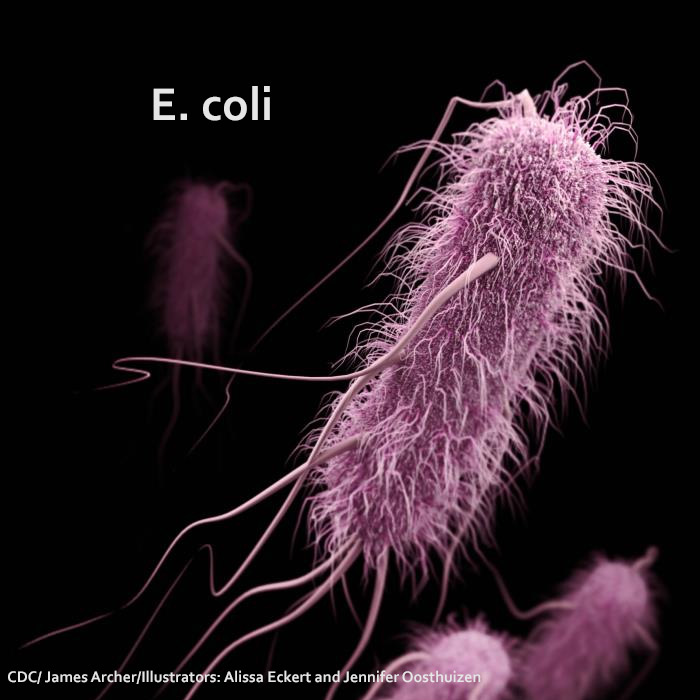People who are infected with E. coli O157:H7 can develop pancreatitis, which is the inflammation of the pancreas. This is generally accompanied by hemolytic uremic syndrome (HUS), which causes kidney failure.

The pancreas creates enzymes that aid digestion, and hormones that regulate how the body processes sugars. HUS causes an increase in the levels of the pancreatic enzymes, in some cases, three times the normal level1. If you or a loved one has an E. coli infection and HUS, our lawyers can help you get answers, money and justice. Use the form below to contact our law firm for a free consultation about an E. coli lawsuit settlement.
Symptoms of pancreatitis include the following:
- extreme abdominal pain (may radiate to the back and get worse after eating);
- nausea;
- vomiting.
This is a serious, life-threatening illness. Complications can include the following:
- internal bleeding and infection due to the formation of pseudocysts, which are pockets in the pancreas;
- compromised lung function and severe breathing problems, leading to dangerously low levels of oxygen in the blood;
- diabetes.
In severe cases, bleeding, infection, and permanent tissue damage may occur.
One study looked at pancreas transplant in conjunction with kidney transplant for patients with diabetes mellitus (a pancreas-related complication of E. coli-HUS) and renal failure2. This highlights the reality that patients, even small children, who eat food contaminated with E. coli O157 and other Shiga-toxin producing strains of the bacteria (STEC), may need a pancreas and/or kidney transplant at some point during their lives.
The conclusion of another study found:
“Diabetic patients with end-stage renal failure have a poor prognosis without transplant.3”
This study looked at 1000 patients who had simultaneous pancreas-kidney transplants.
Sources
- Masoero, G., et al. “Increased serum pancreatic enzymes in uremia: relation with treatment modality and pancreatic involvement.” Pancreas 13.4 (1996): 350-355.
- Knoll, Greg A., and Graham Nichol. “Dialysis, kidney transplantation, or pancreas transplantation for patients with diabetes mellitus and renal failure: a decision analysis of treatment options.” Journal of the American Society of Nephrology 14.2 (2003): 500-515.
- Sollinger, Hans W., et al. “One thousand simultaneous pancreas-kidney transplants at a single center with 22-year follow-up.” Annals of surgery 250.4 (2009): 618-630.
